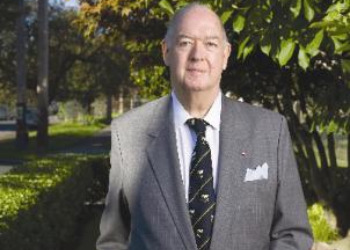By Rene A. Henry
Once upon a time my flight was cancelled. The airline apologized and gave me a voucher for meals. It required an overnight stay and I was reimbursed for all expenses. My baggage was lost and I was given a shaving set, toiletries and told to buy items I really needed. Most flights for the next several days were sold out and my concern about getting to my destination was eased when I was told the airline had backup planes, pilots and flight crews and would add a second section plane to my flight the following day. If I was not pleased I could immediately get a cash refund.
This was the way airlines did business before deregulation. All fares were the same whether you bought your ticket seven weeks, seven days or seven minutes before departure. The only difference between airlines was customer service. And then, customer service was outstanding.
How did we get to where we are today? Alfred E. Kahn, a Cornell University economics professor, believed that eliminating government regulation of the industry would create new airlines, increase competition and lower fares. He convinced president Jimmy Carter and that led to the Airline Deregulation Act in 1978 that phased out all federal rules through January 1983.
Kahn was right about fares. Airlines cut fares along with customer service. Several new low-fare budget airlines began service but competition dwindled every year with the loss of PanAm, TWA, Braniff, Eastern, Continental, National, Ozark, Western, PSA, Piedmont, Northwest and scores of others leaving us today with American, Delta, United, Alaska and Southwest controlling the industry.
The professor obviously never talked to passengers, pilots, flight crews, investors and airline executives. All were happy with the regulation and the way things were. Most airlines strongly opposed deregulation and encouraged their employees to lobby against the bill’s passage. Many economists differed with Kahn and predicted exactly what happened.
With the advent of dereg, airlines began reducing services passengers once could take for granted. Almost all were eliminated by the start of the 21st- Century. Newspapers and magazines once were on board for all travellers. Some coast-to-coast flights even had typewriters to use on board. First-class passengers had several choices for meal flights. Those in coach also were given a free meal. The “extras” not eaten by passengers were for the flight crew. Now you see pilots and crews standing in fast food lines at terminals to buy their meals..
Many planes had lounges in first class before wide bodies that had an upper deck on its 747s. A couple of airlines even had lounges for coach passengers. One even had a piano bar in the rear of its L-1011. All such areas now have been packed with seats that are much smaller in size and with less legroom. Some critics question if this is safe.
Airline ticket counters, once conveniently located throughout downtowns, and people always available on the telephone, have been replaced by robots, technology and computers. As airlines reduced staff sizes, wages and benefits the strategy resulted in strikes and lower productivity.
In 1995 the industry began losing its strongest supporters when airlines began to stop paying a commission to travel agencies. Cuts were phased in from seven percent to five to zero. this forced many travel agents out of business. Successful travel agencies have added a fee and provide clients with many services the airlines once provided. Some airlines tried to buy travel businesses that had corporate accounts offering the owners only 30 percent of value in an attempt to build loyalty without service. This backfired.
While economy class fares have been reduced, the cost to fly in business and first class has increased significantly to subsidize those in coach. Economy ticket prices vary to and from the same destinations depending on the day of the week and time of day of the flight, when purchased, and if during a holiday season. Does this make sense?
I took my first flight in December 1950 on Piedmont Airlines from Charleston, W.Va. to Cincinnati. Since I have flown more than three million miles to countless destinations on scores of airlines. I have enjoyed the benefit of being a frequent flier on several airlines. I’ve also logged thousands of miles on corporate airplanes.
Airlines set a record in 2022 for cancelled flights, delayed flights and lost baggage and angry passengers. Fliers need to add up the myriad of hidden costs airlines now have that include charges for checked baggage, not sitting in a middle seat, being able to have the family sit together and how the ticket was purchased. Is a low fare really a low fare? Is the price really worth the lack of customer service, frustration and airlines not meeting expectations?
Bob Newhart’s hilarious comedy skit about the Grace L. Ferguson Airline and Storm Door Company has become a reality.





